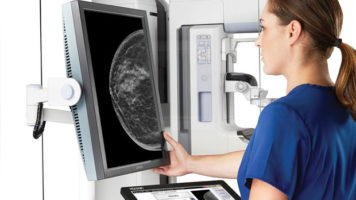In the News

Drug could alleviate side effects of chemo for breast cancer patients
Source: EurekAlert!
Researchers at the Stanford University School of Medicine have demonstrated a method of forecasting which breast cancer patients will suffer heart problems from a commonly used chemotherapy drug.
The researchers also found that a class of medications already approved by the Food and Drug Administration may mitigate these side effects.
“We could use this method to find out who’s going to develop chemo-related toxicity and who’s not,” said Joseph Wu, MD, PhD, professor of cardiovascular medicine and of radiology and director of the Stanford Cardiovascular Institute. “And now we have an idea about the cardioprotective medications we can give them.”
A paper describing the work will be published online March 14 in Circulation. Wu, who is the Simon H. Stertzer, MD, Professor, is the senior author. Former research fellow Tomoya Kitani, MD, now a clinical assistant professor at the Kyoto Prefecture University of Medicine in Japan, is the lead author.
Between 15 and 20 percent of breast cancer patients have the HER2-positive variety, for which the most effective treatment is the chemotherapy drug trastuzumab, sold under the brand name Herceptin. But trastuzumab also causes more heart problems than other breast cancer drugs; about 15 percent of patients taking it will develop cardiac dysfunction, likely because of a genetic predisposition. The side effects include a reduction in the amount of blood the heart pumps with each contraction and, less commonly but more seriously, heart failure. Except for quitting trastuzumab, there currently is no treatment for the side effects.
Knowing which patients will develop heart problems — and having medications to treat them — could allow patients to receive the most effective cancer-fighting therapy.


